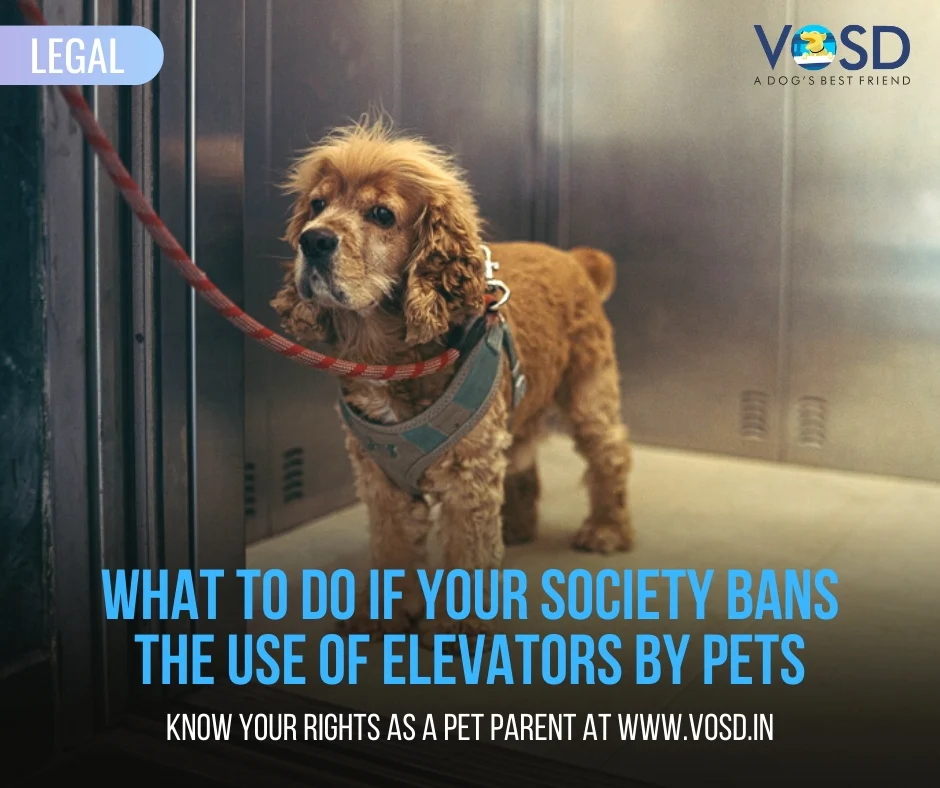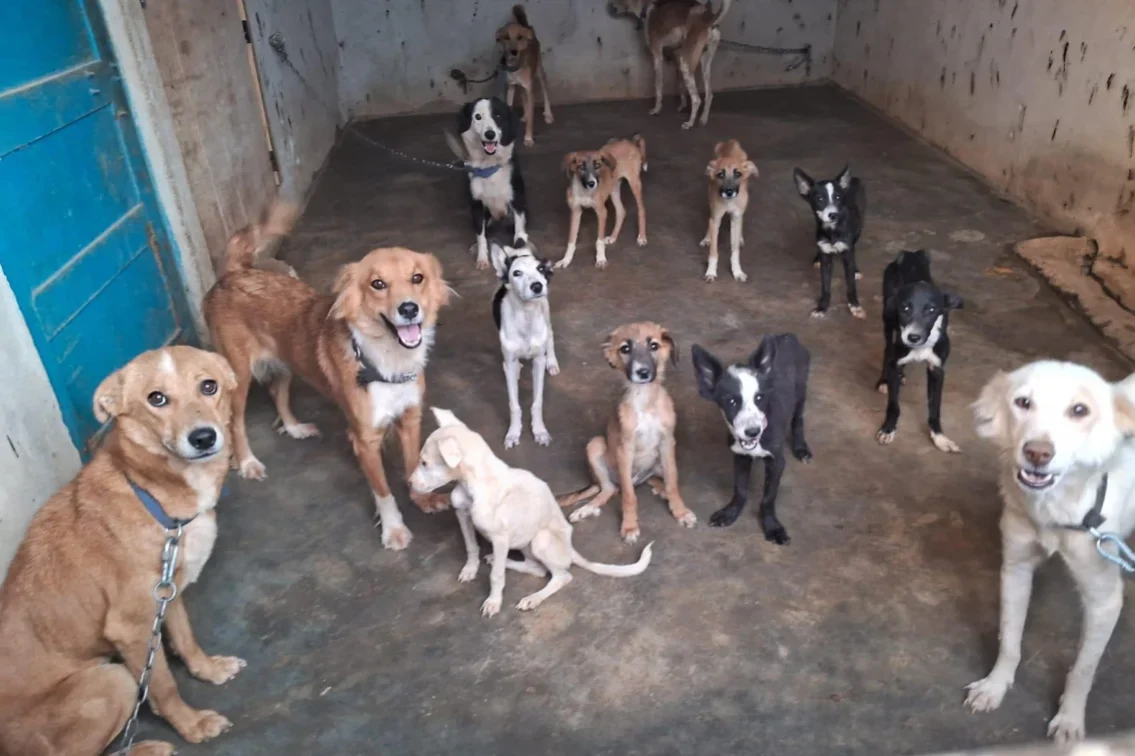Pets do have rights in our country. The first part was devoted to what you must know about the unlawful restrictions imposed upon the use of elevators by pets. You can read that article here . Here we will focus on what you should or could do if faced with similar situations.
Pet rights: the first step is to identify what’s illegal.
If you live in a multi-storeyed apartment complex, and your society, or Estate Manager, or anybody authorised by them:
- Suddenly puts up a notice declaring that your pet cannot use the elevator, OR
- Declares that the use of elevators by pets will be discussed at an AGM (annual general meeting), or an EGM (extra-ordinary general meeting) of the society, OR
- Declares that the bye-laws or amended bye-laws of the housing society don’t allow the use of elevators by pets, OR
- Writes to you specifically and tries to ban your pet from using the elevator,
you should challenge their action as illegal. Write to them. Simply download the document here and fill out the relevant details. Issue this letter through registered post and/or e-mail. You will need a record of issuance. Continue to use the elevator for your pet.
What to do if this doesn’t work.
You’ve now resolved to fight for the rights of your canine child. Sometimes a letter might not be enough. You might have to escalate the effort if the society levies a fine/penalty or denies you the use of essential services.
In such an event, you could either take the fight to the District Consumer Disputes Redressal Forum that has territorial jurisdiction to deal with your case. Or, you can take the dispute to the concerned Registrar of Cooperative Societies.
Consumer Forums are consumer friendly courts set up under the Consumer Protection Act. They typically deal with cases filed by consumers in which the allegation or grievance is a ‘defect in goods’ or ‘deficiency in services’. This sort of case would fall under ‘deficiency of services’.
Every state (and union territory) has its own cooperative societies law. For example, the Karnataka Cooperative Societies Act was framed in 1959 and was made for the State of Karnataka. The Registrar of Cooperative Societies handles disputes between members of societies and between entire societies (through their managing committees) in their concerned state or union territory.
How to obtain legal support.
At VOSD, we have a compendium of knowledge relating to dog rights. If you have questions about finding appropriate legal help, check out our information here.





